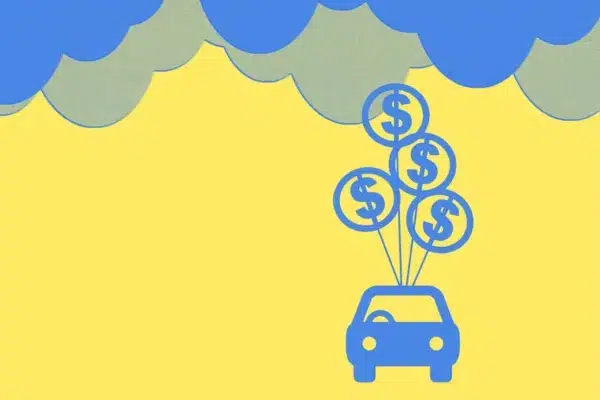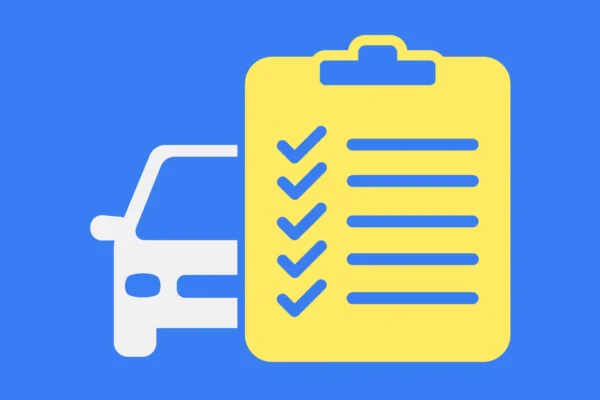
Shopping for a New Car? Here's How Navigate Auto Dealership Fees

Dreading your next trip to the car lot?
Negotiating a final price on a new vehicle can be a frustrating process, even for experienced car shoppers. According to the latest Global Automotive Consumer Study, today’s car buyers want to evaluate extras in a more transparent manner at their own pace.
If you’ve purchased a car from a dealership before, you’re likely familiar with the slew of fees, add-ons, and warranties that are offered before you are handed the keys. It all comes after a long day of test driving and walking around the lot, leaving you feeling pressured to make a decision. These things can add thousands of dollars to your final bill, but leave you wondering what, exactly, you paid for.
The bottom line: learning about these fees can prepare you to negotiate the final cost of a new or used car, especially when listed fees don’t seem to apply to your situation.
Financing Your Next Car
Get pre-approved for a new or used auto loan. Explore rates, terms, and our full range of financing and refinancing options!
Auto Dealership Fees to Expect When Purchasing a Car
If you’re about to embark on the purchase of a new car, you may want to identify some possible fees and add-on costs you can expect to see on your final bill.
Standard Dealership Costs
These are common line items to see when purchasing a car. Many times, these are not negotiable.
| Dealership Fees | |
|---|---|
| Dealer cost | This represents the wholesale cost paid by the vendor. It includes warranties and typically factors in other directly related costs such as interest on loans made to buy stock; display expenses, etc. On top of that, the dealer must factor in general business expenses such as labor, rent and utilities before adding a profit margin. |
| Option costs | This number reflects any non-standard a la carte features you’ve chosen, such as metallic paint, automatic emergency braking, alloy wheels, parking sensors, or sunroofs. While you don’t have to get a car with these add-ons, the fees are often unavoidable if you do. |
| Plates, registration, title, sales tax | These fees are routine and unavoidable. This money goes to the government, so the dealership has no control over it. |
| Destination fee | Also known as a delivery fee, this fee covers the cost of getting the vehicle from the manufacturer to the dealer, this should be itemized on the sticker price, not added as a surprise. |
| Finance charges | Whether you secured a loan through the dealer or a financial institution, your agreement will delineate your interest rate, monthly payment amount and agreed-upon payment schedule. |
| Documentation fee | Many dealers list this as an administrative fee to cover paperwork involved in the transaction. While most dealerships will not negotiate this fee, it never hurts to ask. |
| Fuel costs | If you drive away your new car with a full tank of gas, your bill may reflect that. |
| Emissions testing fee | If emissions testing is required in your state and the dealership has already handled it, they may pass on that expense. |
| Warranty processing fee | This reflects the cost of filing your warranty records with the car’s manufacturer. |
Other Negotiable Fees
In this category are costs most dealers incorporate into their regular business expenses. If you see these on your bill, you can often negotiate to have them reduced or removed entirely.
| Other Fees | |
|---|---|
| Compliance fee | Some dealers charge this to pass on costs incurred in keeping up with general state and federal regulations. |
| Floor plan fee | This charge purportedly reflects the expense of keeping your car in the dealer’s inventory. |
| Advertising fee | Some dealers add this to help cover their advertising costs. |
| Dealer prep fee | Some vendors charge you for the final costs of cleaning your vehicle and checking its fluids before you take delivery, but the need for that is debatable in most new cars. The same is true of fabric or paint protection. |
Add-ons and extras
These extras are often pushed by dealerships but can be declined. In many instances, these add-ons are unnecessary and drive up your total—but the ultimate decision is up to you.
| Add-On Fees | |
|---|---|
| Extended warranty | Most cars come with a basic warranty. However, buyers can choose to purchase an extended warranty that covers things beyond the basic offerings or covers the car for a longer period of time.If you are considering an extended warranty, research them carefully and read the fine print. Oftentimes, they do not cover the things buyers think they will. |
| Other warranties and protections | You may be offered additional packages like tread-life warranties, accessory protection, powertrain warranties, and more. Experts like Consumer Reports say that these types of warranties are unnecessary. |
| Credit insurance costs | The dealer may advise you to buy optional credit insurance that negates your loan balance if you die or become disabled. |
| Vehicle identification number (VIN) etching costs | You’ll pay this if you directed the dealership to encode your car’s ID number into its windows as an anti-theft measure. It may be a good idea, but it’s likely cheaper elsewhere. |
| Prepaid oil changes and tire rotation costs | Some dealerships sell these add-on packages with new vehicles. |
| Gap insurance | Guaranteed asset protection, known as gap insurance, covers the difference between your loan and the vehicle should it get totaled or stolen. This coverage may be required by lenders, but it is generally optional. |
| Appearance packages | Add-ons like paint sealant, window tints, and mud flaps are all considered an appearance add-on. Oftentimes, these additions can be done outside of the dealership for less money. |
Go In Prepared
The key to not paying more than you want? Do your research ahead of time and know what you want. Don’t let a salesperson convince you that you need something that you really don’t want. You can also avoid being blindsided by hidden fees by asking for a “out-the-door cost” estimate before paperwork is drawn up.
Remember, dealerships won’t advertise that they will negotiate fees and add-ons with buyers. It never hurts to ask. At worst, the fee is non-negotiable. At best, you save money on your new car!


